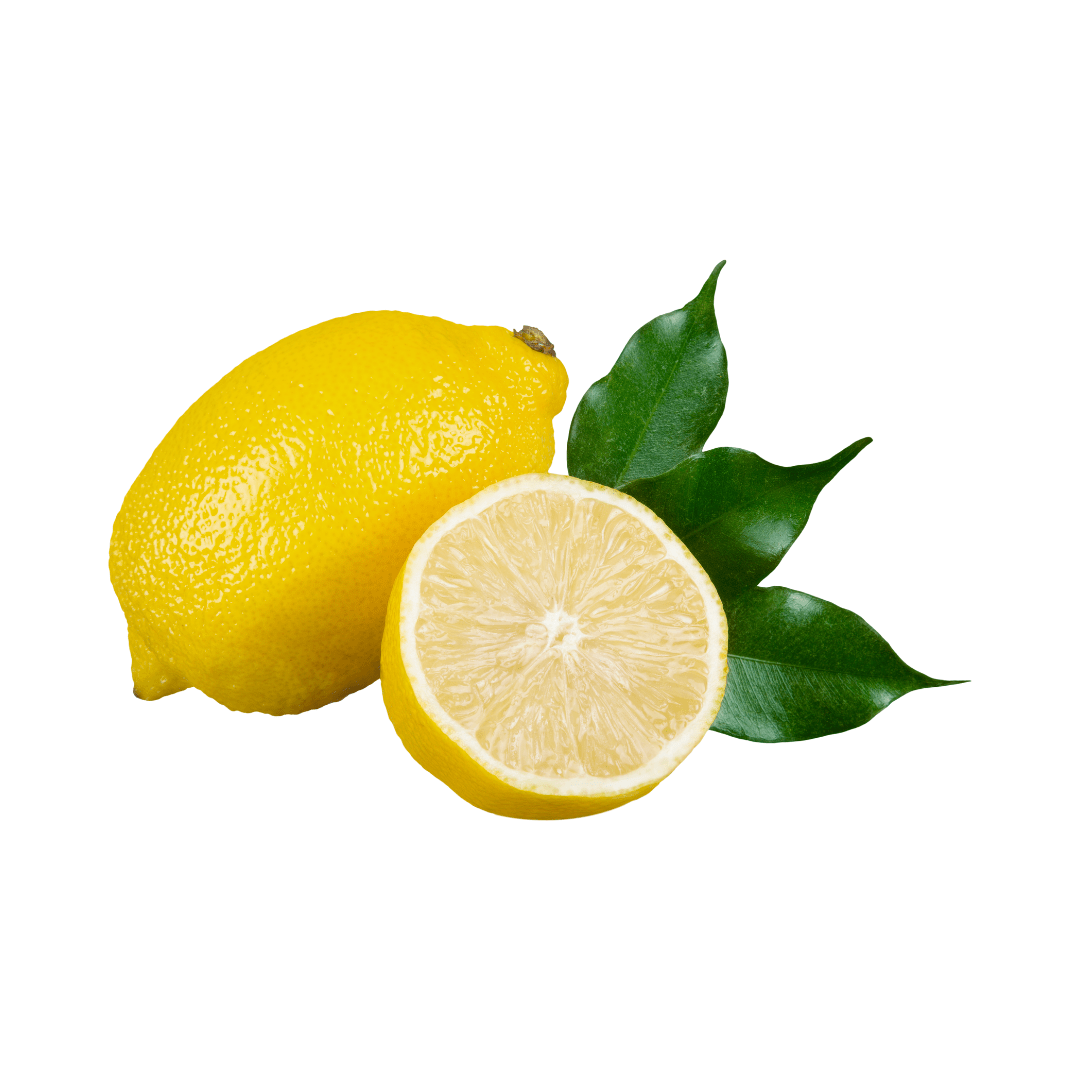About
A lemon is a small, oval-shaped, citrus fruit with a bright yellow or greenish-yellow, thin, and textured outer peel, or zest, and a juicy, acidic pulp inside. It is commonly used in cooking, baking, and beverage making as a flavoring and preservative ingredient.
Health Benefits of Lemon:
-
Rich in Vitamin C: Lemons are a great source of vitamin C, which is essential for boosting the immune system, maintaining healthy skin, and preventing chronic diseases.
-
Promotes Hydration: Lemon contains water and electrolytes, making it a great way to stay hydrated and energized.
-
Aids in Digestion: The acidic nature of lemon juice helps to stimulate the production of digestive juices and enzymes, making it easier for the body to break down food.
-
Promotes Weight Loss: Lemon contains pectin fiber, which helps to reduce hunger and control cravings, leading to weight loss.
-
Improves Skin Quality: The vitamin C and antioxidants in lemon help to reduce skin damage caused by free radicals, preventing premature aging and promoting healthy skin.
-
Reduces Inflammation: The flavonoids in lemon have anti-inflammatory properties, which help to reduce inflammation in the body and prevent chronic diseases.
-
Boosts Mood and Energy: Lemon is a natural mood booster, and the high levels of vitamin C help to improve energy levels.
List of Diseases that can be cured:
- Scurvy
- Kidney Stones
- High Blood Pressure
- Cold and Flu
- Digestive Issues
- Anemia
- Urinary Tract Infections
Energy and Macronutrients found in 50g serving of Lemon:
| Nutrient | Amount |
|---|---|
| Calories | 8 |
| Carbohydrates | 2.6 g |
| Fiber | 0.8 g |
| Protein | 0.3 g |
| Fat | 0.1 g |
| Water | 46.7 g |
Vitamins found in 50g serving of Lemon:
| Vitamin | Amount |
|---|---|
| Vitamin C | 24.3 mg |
| Folate | 8.5 mcg |
| Vitamin E | 0.2 mg |
| Vitamin B1 | 0.01 mg |
| Vitamin B2 | 0.01 mg |
| Vitamin B3 | 0.1 mg |
| Vitamin B6 | 0.03 mg |
| Vitamin K | 1.6 mcg |
| Biotin | 0.1 mcg |
| Vitamin A | 4 IU |
| Vitamin D | 0 IU |
| Vitamin B12 | 0 mcg |
Minerals found in 50g serving of Lemon:
| Mineral | Amount |
|---|---|
| Calcium | 10.4 mg |
| Iron | 0.2 mg |
| Iodine | 0 mcg |
| Zinc | 0.1 mg |
| Magnesium | 5.1 mg |
| Phosphorus | 9.8 mg |
| Potassium | 100 mg |
| Sodium | 0.5 mg |
| Chloride | 17 mg |
| Copper | 0.02 mg |
| Chromium | 0 mcg |
| Fluoride | 0.3 mcg |
| Molybdenum | 0.1 mcg |
| Manganese | 0.02 mg |
What is a lemon, and how does it look?
A lemon is a small, oval-shaped citrus fruit with a bright yellow or greenish-yellow thin outer peel and a juicy, acidic pulp inside.
What are the health benefits of consuming lemons?
Lemons are rich in vitamin C, promote hydration, aid in digestion, support weight loss, improve skin quality, and reduce inflammation.
How does lemon benefit the immune system?
Lemons are an excellent source of vitamin C, which plays a vital role in boosting the immune system.
Can lemon water help with hydration?
Yes, lemon water provides hydration and electrolytes, making it a refreshing and energizing beverage.
How does lemon aid in digestion?
The acidic nature of lemon juice stimulates the production of digestive juices and enzymes, facilitating the breakdown of food.
Can lemon contribute to weight loss?
Lemon's pectin fiber helps reduce hunger and control cravings, potentially aiding in weight loss.
How does lemon improve skin health?
The vitamin C and antioxidants in lemons help protect the skin from free-radical damage and support healthy skin.
Is lemon beneficial for reducing inflammation?
Yes, the flavonoids in lemons have anti-inflammatory properties that can help reduce inflammation in the body.
Does lemon consumption affect mood and energy levels?
Lemon is a natural mood booster, and its high vitamin C content can improve energy levels.
What diseases can be potentially cured or helped by lemon consumption?
Lemons may be beneficial in managing conditions like scurvy, kidney stones, high blood pressure, cold and flu, digestive issues, anemia, and urinary tract infections.
How many calories are there in a 50g serving of lemon?
A 50g serving of lemon contains approximately 8 calories.
What vitamins are found in lemons?
Lemons are a good source of vitamin C, vitamin E, vitamin B1, vitamin B2, vitamin B3, vitamin B6, vitamin K, biotin, vitamin A, and vitamin D.
What minerals are present in lemons?
Lemons contain minerals such as calcium, iron, zinc, magnesium, phosphorus, potassium, sodium, chloride, copper, fluoride, molybdenum, and manganese.
How can lemon consumption prevent scurvy?
Scurvy is prevented by consuming vitamin C, and lemons are an excellent source of this essential nutrient.
Can lemon water help dissolve kidney stones?
Lemon water, due to its citric acid content, may help prevent the formation of certain types of kidney stones.
How does lemon support heart health?
Lemon's potassium content may help lower blood pressure, supporting heart health.
Is lemon effective in treating cold and flu?
Lemons' vitamin C content can potentially help boost the immune system and alleviate cold and flu symptoms.
Can lemon juice aid in digestive issues?
Lemon juice's acidity can aid digestion by stimulating the release of digestive enzymes.
How to incorporate lemon into a daily diet?
Lemon can be added to water, used as a flavoring in dishes, salads, dressings, or in tea to incorporate it into the daily diet.
Is lemon juice beneficial for urinary tract infections?
The antibacterial properties of lemon juice can potentially help in managing urinary tract infections.









